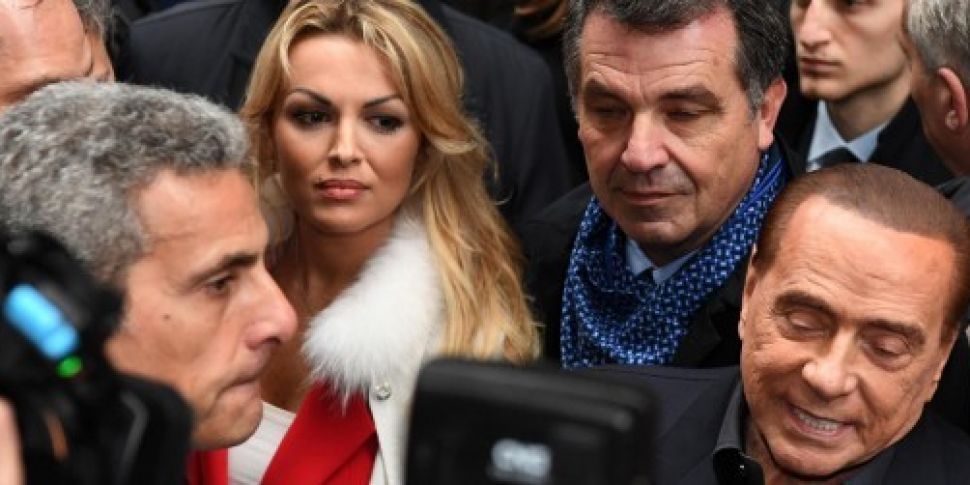Polls have opened in Italy for a national election that is as hard to predict as it is important, with up to 10 million voters said still to be undecided.
In a fractured and polarised political landscape, Italians will choose from numerous political parties; some centrist, some anti-establishment, some extreme and with a new, untested electoral system.
The economy and immigration have dominated the campaign, and the likely consequence of the race to lead the Eurozone's third largest economy is either a government formed of anti-establishment, anti-immigration parties or prolonged uncertainty with a hung parliament.
Players
The characters vying for power include Luigi Di Maio, a 31-year-old novice who leads the anti-establishment Five Star Movement; Matteo Salvini, the controversial leader of the far-right League Party; Matteo Renzi, the centrist who quit as prime minster last year after losing a referendum; and the self-styled, controversial grandfather of Italian politics, Silvio Berlusconi.
The centre-left Democratic Party which has dominated Italian politics for the past five years with three different prime ministers is expected to perform badly despite leading the country back from the brink of economic disaster.
Debt
Italy is Europe's fourth largest economy and the third largest in the Eurozone, and yet it is growing at a much slower pace than other European nations.
The country carries debt worth 135% of its GDP, representing 20% of the Eurozone total debt, and so its political direction and economic success matters right across the continent.
The ballot box decisions made by the young will be particularly important. A third of Italians under the age of 25 are unemployed. Apathy among the young is high with polls suggesting as many as 40% of young voters may abstain.
Familiar face
Convicted fraudster Silvio Berlusconi is Italy's longest serving prime minister and is attempting a remarkable comeback as the leader of the centre-right Forza Italia Party.
The 81-year-old's conviction bars him from becoming leader himself, but he has cast himself as experienced elder statesman who can provide clarity and certainty for voters.
The sex and financial scandals which dominated his latter years of office seem to have been forgotten.
"Today the country needs to capitalise on his experience because there are no other leaders except him," one voter told us.
"I think that his experience is a good thing for us," another said.
Alberto Castelvecchi, a political analyst at Rome's Luiss University, said: "Berlusconi comes out and he says 'I will put you together, I am the leader for tenderness, and good sentiment and good feelings', so he presented himself as Mr Feelgood in a moment when Italians were feeling very bad."
Far-right
However, his party is unlikely to win a majority on its own and so he is relying on a loose coalition with two far-right parties: Mr Salvini's League Party and the radical Brothers of Italy led by Giorgia Meloni.
The League, with the motto "Italy First', and the Brothers of Italy are both very eurosceptic and have hardline anti-immigration policies.
Mr Salvini, 44, has pledged to repatriate 100,000 illegal immigrants and has talked of "cleansing the streets."
As a frontier EU country, Italy has seen a huge influx of migrants from countries across Africa with 630,000 arriving since 2014.
Although the perception of a migration problem may be greater than the reality (the country has among the lowest share of immigrants across the EU), asylum processing has been poor as has the system to turn back failed asylum seekers.
All three parties in the right-wing coalition have proposed a single flat rate of income tax and pledged to introduce a parallel currency for domestic use, retaining the Euro only for international trade.
Support for the single currency in Italy is the lowest in the Eurozone.
Anti-establishment
Campaigning against them, the Five Star movement, founded by comedian Beppe Grillo and now led by 31-year-old Mr Di Maio, is anti-establishment and known more for what it rejects than what it stands for.
Yet for voters fed up with what they see as the stagnation of establishment politics, it provides an attractive alternative.
The movement's rejection of the establishment makes it hard for it to propose coalitions. It is polling well on its own but is unlikely to get the 40% needed for a majority of seats, making a coalition tempting.
It has proposed an unconditional basic income for all of 780 Euros, early retirement, a reduction of taxes and a raise in the tax threshold - populist policies which may appeal but will make reducing the country's debt even harder.
Speaking at his last rally in Rome, Mr Di Maio told supporters: "People think voting on Sunday won't make any difference. But in every seat in this country the difference is made by you. That's not a sentimental point - it's mathematical... we are one step from victory."
He accused the centre-left incumbent government of not changing anything in years and promised that his party would deliver on all its promises as soon as it won office.
Centre-left
The centre-left Democratic Party, with candidate Mr Renzi, is expected to be the biggest loser in the vote.
Mr Berlusconi's right-wing coalition could get the most votes but within it, Mr Salvini's League may get more votes than Mr Berlusconi's Forza Italia. In that scenario, Mr Salvini will claim he should be prime minister.
From the centrist perspective, and that of the European Union establishment in Brussels, a prime minister Salvini would be a bad outcome.
But the nightmare scenario for the establishment would be a coalition between Mr Salvini's League and the Five Star Movement - unlikely but possible.
A centrist grand coalition between Mr Berlusconi's party and Mr Renzi's Democratic Party is seen as the least volatile option.
However a hung parliament with months of jockeying and uncertainty is the most likely prospect.









